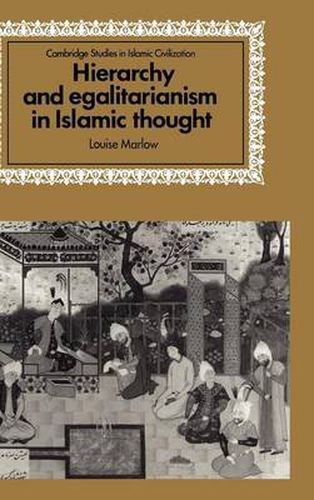Readings Newsletter
Become a Readings Member to make your shopping experience even easier.
Sign in or sign up for free!
You’re not far away from qualifying for FREE standard shipping within Australia
You’ve qualified for FREE standard shipping within Australia
The cart is loading…






By examining a wide range of Arabic and Persian literature from the eighth to the thirteenth century, Louise Marlow shows the tension that existed between the traditional egalitarian ideal of early Islam, and the hierarchical impulses of the classical period. The literature demonstrates that while Islam’s initial orientation was markedly egalitarian, the social aspect of this egalitarianism was soon undermined in the aftermath of Islam’s political success, and as hierarchical social ideas from older cultures in the Middle East were incorporated into the new polity. Although the memory of its early promise never entirely receded, social egalitarianism quickly came to be associated with political subversion. On account of its originality and chronological scope, Louise Marlow’s book will be of use to a wide readership of Islamic historians and of scholars assessing the impact of the modern Islamic revival.
$9.00 standard shipping within Australia
FREE standard shipping within Australia for orders over $100.00
Express & International shipping calculated at checkout
By examining a wide range of Arabic and Persian literature from the eighth to the thirteenth century, Louise Marlow shows the tension that existed between the traditional egalitarian ideal of early Islam, and the hierarchical impulses of the classical period. The literature demonstrates that while Islam’s initial orientation was markedly egalitarian, the social aspect of this egalitarianism was soon undermined in the aftermath of Islam’s political success, and as hierarchical social ideas from older cultures in the Middle East were incorporated into the new polity. Although the memory of its early promise never entirely receded, social egalitarianism quickly came to be associated with political subversion. On account of its originality and chronological scope, Louise Marlow’s book will be of use to a wide readership of Islamic historians and of scholars assessing the impact of the modern Islamic revival.